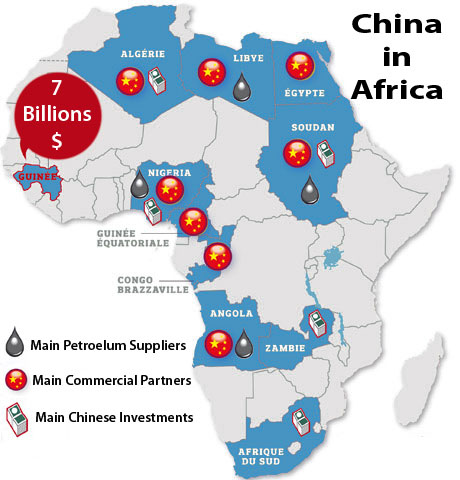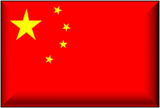Your PARTNER to CHINA : invest China, business China, consulting China, investment China, internationalization SME China
China invests in Africa
China is investing billions of dollars in Africa to secure natural resources for the Asian giant's growing economy and build Beijing's political influence in the developing world.

China is investing billions of dollars in Africa to secure natural resources for the Asian giant's growing economy and build Beijing's political influence in the developing world. With China’s African Policy Paper, by Government on 2006, China presented to the world the objectives of China's policy towards Africa and the measures to achieve them. Chinese interest in Africa was, above all, for African vast expanse of land, rich natural resources and huge potential for development. The general principles and objectives of China's African policy refer to establish and develop a new type of strategic partnership with Africa, featuring political equality and mutual trust, economic “win-win” cooperation and cultural exchange. According to the Document, mechanisms such as national bilateral committees between China and African countries, political consultation between foreign ministries, joint (mixed) committees on trade and economic cooperation and mixed committees on science and technology should be established and improved, so as to institutionalize dialogue and consultation in a flexible and pragmatic manner. Specifically for the economic field, the Chinese Government said that more effective measures will be adopted to facilitate African commodities' access to Chinese market and fulfill its promise to grant duty-free treatment to some goods from the least developed African countries, with a view to expanding and balancing bilateral trade and optimizing trade structure. The Chinese Government also encourages and supports Chinese enterprises' investment and business in Africa, providing preferential loans and buyer credits to this end. African countries are welcome to make investment in China. The Chinese Government will continue to negotiate, conclude and implement the Agreement on Bilateral Facilitation and Protection of Investment and the Agreement on Avoidance of Double Taxation with African Countries. China promoted also cooperation on agricultural, infrastructure, tourism; besides, it wants to seek solution to, or reduction of, the debts Africa owes to China. As results of these intentions, the trade volume between China and Africa reached US$106.8 billion in 2008, registering a yearly increase of 33.5%. In 2008, China's export to Africa was 50.8 billions and import 56 billions (in 2009, oil, gas and minerals accounted for 86% of total). The main African partners of the interchange are Angola, South Africa and Sudan. By 2008, China became the second among Africa’s trade partner. As of the end of 2008, the Foreign Direct Investment from China to Africa stood at 7.8 billion and in 2009 it is expected to increase by 80%. The trend reflects the growing economic power of China and that is well received by Africa. African countries, besides, have a pressing demand for large-scale infrastructure construction and China is more than happy to do something in this regard.
Services
Our extensive network allows us to give a full set of consulting services to invest in China. We provide assistance for the internationalization of the SME in China for:
About Us
Our consulting company supports every business phase for client who want to invest in China, thanks to our professional people and extensive Chinese network, also called "Guanxi". It allows the company (SME in particular) to minimize risks and disappointments when doing business in China.





